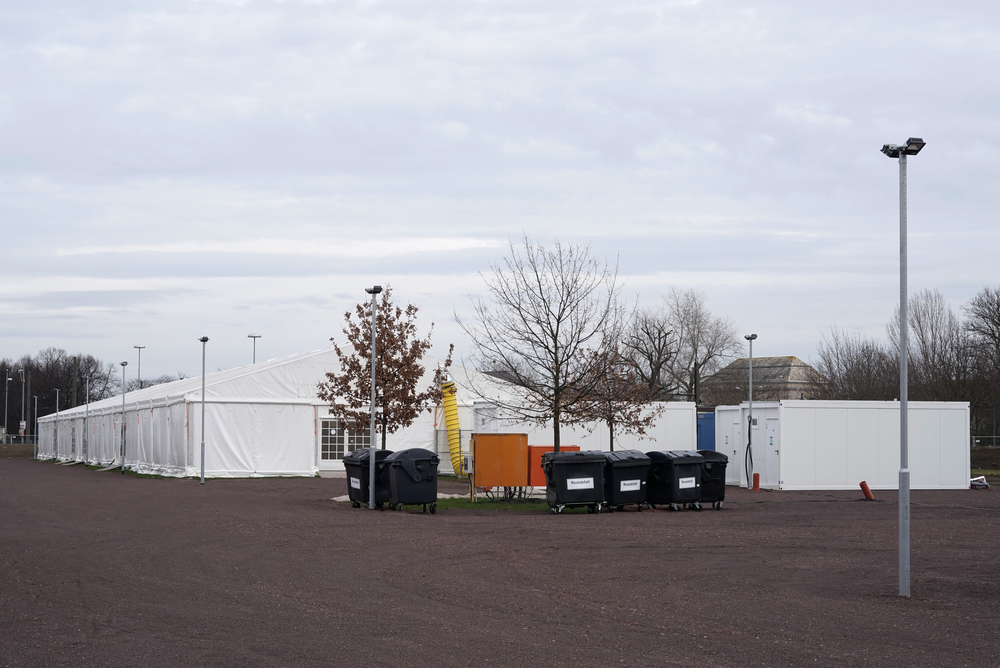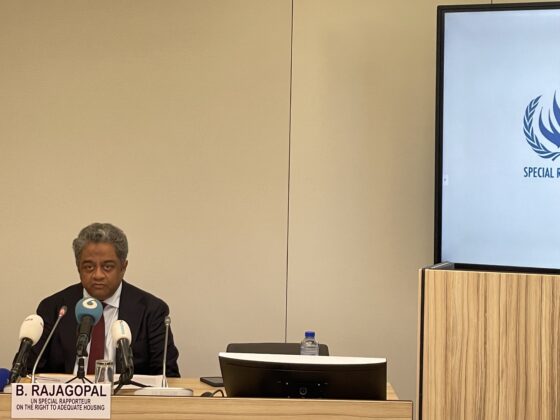UN rapporteur on housing says crisis is not caused by migrants
Senay Boztas
The UN special rapporteur on the right to housing has said that the Dutch housing crisis is not caused by immigration, but migrants are among its victims.
Balakrishnan Rajagopal, also associate professor of law and development at the Massachusetts Institute of Technology, has spent two weeks investigating the causes of the crisis and reported initial findings to press in The Hague on Thursday.
He stoutly contradicted the narrative – most strongly voiced by Geert Wilders and the PVV – that migrants are responsible. “I think that that is unfortunately a mistake,” he said. “I don’t see evidence at all that the housing crisis was caused by migrants. Migrants suffer, in fact, from it: it’s the other way around.
“There is a housing crisis whose roots include policy decisions made over 10 or more years, transitioning away from social housing, allowing over-reliance on the private market, allowing social housing companies to behave like for-profit companies, weakening accountability systems… Social housing was a cultural heritage of the Netherlands and then things started going south.”
Travelling the country from Rotterdam to Groningen, meeting people from social housing tenants who were evicted to travelling people, he concluded that decent housing rights need to be enforceable in law, financial and tax policies need to promote them and ombudsmen need more powers.
“There’s no question that there’s an acute housing crisis in the Netherlands – people are feeling the effects of it whether they are Dutch people, migrants, asylum seekers, the undocumented,” he began. “What I sometimes hear, especially from people who jump to conclusions quickly, is that the housing crisis is caused by migration – and by that they often mean asylum seekers.
“I just don’t share that view. I think there is a crisis in this country but it’s a housing crisis, not a migration crisis. It would be wrong to conclude the broader societal crisis in terms of housing is entirely because of migration – I just don’t see the evidence of that and data doesn’t back it up either.”

Unhealthy
Rajagopal, who will present a full report in March, pointed out that the Netherlands has the highest level of social housing in Europe. But he called for more attention to communities in Groningen whose houses were made unsafe by decades of lucrative gas extraction, more rights for people whose social homes are being demolished and a bonfire of anti-squatting contracts with zero security of tenure. He also criticised incomplete measures of homelessness and distinctions made between the “deserving and the undeserving poor” in homelessness policy.
“When I visited Castricum, for example, I observed temporary housing in container housing for groups including the economic homeless and also refugees,” he said.
“I saw water pouring through the roof when it rains, dangerously high levels of humidity coupled with a lack of ventilation producing mould everywhere, extreme heat in the summer was reported to me…very unhealthy housing conditions, quite dangerous for children and completely inconsistent with human dignity, particularly in an affluent society.”
Labour exploitation
He also had harsh words for the conditions of European migrant workers he saw in The Hague. “There’s a very close connection between housing vulnerability and the terrible employment contracts they receive,” he said. “The labour conditions are akin to labour exploitation… There is a close relation with employment policy, labour migration and the housing crisis in the Netherlands.”
Universities, meanwhile, should only admit as many students as can find housing locally. “Students in the Netherlands seem to fare quite badly when it comes to accessing housing – not just international students, but many Dutch students,” he said.
“They all face severe housing shortages, usurious landlords who charge whatever they want and conditions of housing which are exploited. Unfortunately, universities have increased admission slots but they don’t seem to have a corresponding social responsibility to ensure people who are admitted actually have housing options.”
However, he was still hopeful for change. “The country is at a delicate moment in a way because of the recent elections,” he acknowledged. “There is a societal recognition that housing needs to be protected more as a right of the people. As a democratic government, accountable to its people, I believe that whichever government emerges cannot ignore that sentiment.”
Thank you for donating to DutchNews.nl.
We could not provide the Dutch News service, and keep it free of charge, without the generous support of our readers. Your donations allow us to report on issues you tell us matter, and provide you with a summary of the most important Dutch news each day.
Make a donation